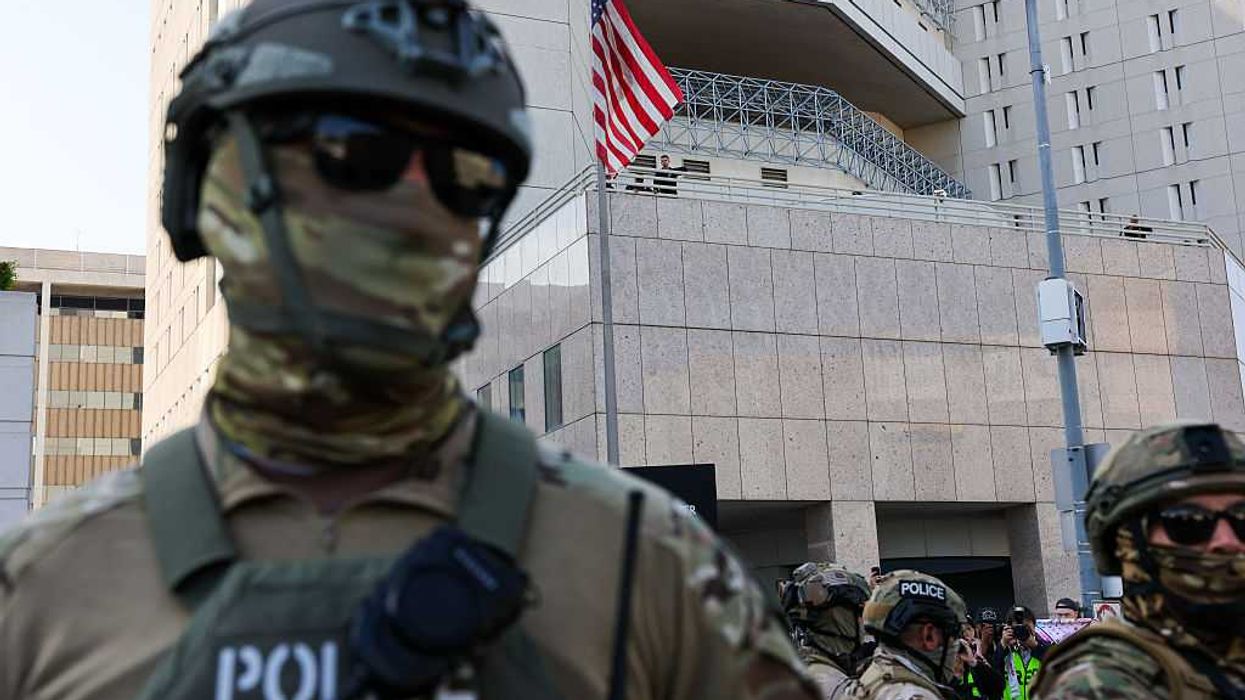In a constitutional democracy, congressional oversight is not a courtesy—it is a cornerstone of the separation of powers enshrined in our founding documents.
Lawyers Defending American Democracy (LDAD) has filed an amicus brief in Neguse v. U.S. Immigration and Customs Enforcement, arguing that ICE’s policy restricting unannounced visits by members of Congress “directly violates federal law.” Twelve lawmakers brought this suit to challenge ICE’s new requirement that elected officials provide seven days’ notice before visiting detention facilities—an edict that undermines transparency and shields executive agencies from scrutiny.
At the plaintiffs’ request, LDAD’s brief focuses on two constitutional pillars: standing and appropriations law. The denial of access harms individual members of Congress by violating a statutory right unique to their office.
Moreover, the fact that the provision guaranteeing unannounced access appears in an appropriations bill does not diminish its legal force. As Mitt Regan, McDevitt Professor of Jurisprudence at Georgetown Law and principal author of the brief, stated: “Federal law explicitly protects Members of Congress’ right to unannounced oversight visits. ICE’s policy violates both the letter and spirit of that law.”
The Trump administration’s argument for restricting unannounced visits by members of Congress to ICE facilities centers on operational control and security concerns. Some of their reasoning includes:
- Operational Disruption: ICE claims that unannounced visits can interfere with facility operations, including detainee processing, legal proceedings, and staff duties.
- Security Protocols: The administration argues that prior notice allows ICE to ensure safety for both visitors and detainees, citing concerns about crowd control and potential confrontations.
- Discretionary Authority: Under the new guidelines, ICE asserts “sole and unreviewable discretion” to deny, cancel, or reschedule visits for any reason, including “operational concerns” or if deemed “appropriate” by facility managers.
- Distinction Between Facilities: DHS claims that while federal law allows unannounced visits to detention centers, it does not apply to ICE field offices—despite the fact that immigrants are often detained there before transfer.
However, critics, including Rep. Bennie Thompson, argue this policy violates federal law, which explicitly allows members of Congress to conduct oversight visits without prior notice to any DHS facility used to “detain or otherwise house aliens.” Furthermore, the policy has led to multiple incidents where Democratic lawmakers were denied entry or arrested during attempted oversight visits, fueling accusations that the administration is trying to avoid scrutiny of detention conditions.
Despite the administration's claims, the case seems clear. Congress has both the legal authority and the moral obligation to inspect detention centers, especially those housing vulnerable populations. Federal law prohibits DHS from using appropriated funds to block or delay such visits. By ignoring this mandate, ICE not only violates statutory law but also erodes the separation of powers that sustains our democracy.
LDAD’s defense of congressional oversight is part of a broader initiative led by Professor Julie Goldscheid and former Judge Rosalyn Richter, who have been sounding the alarm about the administration’s executive edicts and their alignment with Project 2025—the authoritarian blueprint advanced by the Heritage Foundation. In her recent Fulcrum column, “Project 2025 in Action: Sounding the Alarm for Democracy,” Professor Goldscheid warned:
“Since taking office in January 2025, the Trump administration has systematically taken steps to implement Project 2025… These actions touch on virtually every aspect of public and private life, leaving many Americans across the country overwhelmed, confused, exhausted, and frightened.”
She also offered a powerful call to action:
“Each of us can take steps to support—and perfect—our democracy… The value of the right to speak freely, to celebrate dissent even when uncomfortable, to have a say in our government, to live free from surveillance and the threat of unwarranted punishment, demands no less.”
LDAD was founded to galvanize lawyers in defense of the rule of law amid unprecedented threats to democratic governance. Their mission is nonpartisan and rooted in the belief that legal professionals have a unique responsibility to:
- Uphold democratic and legal principles consistent with their ethical obligations
- Demand accountability from lawyers and public officials
- Call out attacks on legal norms and advocate for redress




















Trump & Hegseth gave Mark Kelly a huge 2028 gift